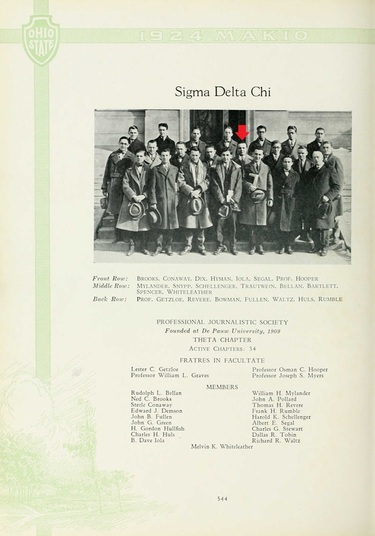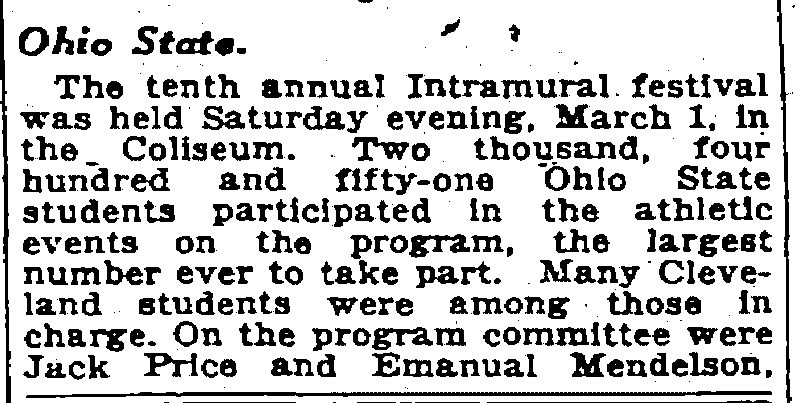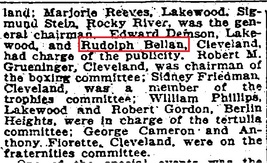
Getting a college education was still rare at this time, especially for a child of urban blue collar immigrants. Young people were lucky if they were even able to finish their secondary education. Rudy did not go off to college right after secondary school; in the 1920 census, he is working at a clerical job with a newspaper and still living with his parents and seven siblings in Cleveland. But by 1922, he is listed as a first-year student in Ohio State's student directory. (By the way, Google Books is a great resource for older university directories.)
I like Rudy's story because it truly shows the opportunities that awaited for immigrants and their families when they came to America. If George and Ursula had stayed in Croatia, would their children have had the opportunity to pursue a college education? Probably not. In the 1940 census, George and Ursula list their 'highest grade of school completed' as '6,' and even that may have been generous.
Not to get up too high on my soapbox, but these types of stories need to be told, and they have relevance with regards to today's immigration issues. America is STILL a land of opportunity for immigrants. Parents still bring their families here to find better lives. Every year around this time, you can Google search for news stories about the child or grandchild of an immigrant who becomes the first in the family to graduate with a college degree. So often, we are so overly concerned about the 'unskilled and uneducated' immigrants that we fail to see the great potential in not only them, but in their children and grandchildren, too.






